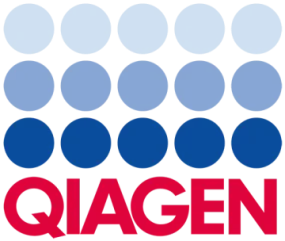
These new assays are available through QIAGEN’s comprehensive GeneGlobe platform which integrates pre-designed assays with a database of more than 10,000 biological entities including genes, miRNAs, and pathways.
QIAGEN has so far launched more than 130 new assays this year, exceeding the 2024 goal and adding to the existing total of more than 2,300 validated assays.
“This important expansion of the menu for QIAcuity digital PCR underscores how QIAGEN is addressing the urgent needs of our customers for new solutions to help use this powerful technology in research and applied testing applications,” said Nitin Sood, Senior Vice President, Head of the Life Sciences Business Area at QIAGEN. “QIAcuity is proving to be a valuable tool for a broad range of applications requiring accurate and sensitive detection of genetic targets, driving the development of new multiplexed assay capabilities. Our efforts won’t stop here as we look to further expand QIAcuity into clinical and biopharma applications as well as new areas of Life Sciences research.”
The newly launched assays include:
- dPCR LNA (locked nucleic acid) Mutation and dPCR CNV (copy number variation) Probe Assays are designed to investigate cancer-relevant mutations and CNVs, which means changes in the number of copies of certain DNA sequences, in genes, including mutations associated with colorectal cancer, malignant tumors of the connective and supporting tissue, so-called sarcoma, or thyroid cancer.
- dPCR Microbial DNA Detection Assays are designed to target critical pathogens responsible for various infectious and tropical diseases, sexually transmitted and urinary tract infections as well as genes associated with antibiotic resistance. The portfolio is also being expanded to detect animal diseases and plant pathogens affecting crops.
The adoption of QIAcuity digital PCR remains strong with more than 2,000 cumulative placements at the end of 2023 and citations in over 450 publications. Key customers include pharmaceutical and biotechnology companies, academic and research organizations, diagnostic centers and forensic laboratories.
QIAGEN’s QIAcuity digital PCR platform utilizes nanoplates to disperse a sample into thousands of tiny partitions and then reads the reaction in each one simultaneously to quantify even the faintest signals from DNA and RNA. The platform integrates partitioning, thermocycling, and imaging into a streamlined multiplex workflow, reducing processing times from six hours to just two. Available in one-, four-, and eight-plate versions, the platform meets the needs of a wide range of laboratory sizes and throughput requirements.
Expanding QIAGEN’s successful dPCR portfolio into clinical testing, an in-vitro diagnostic version of QIAcuity is set for launch in the fall of 2024. The device will support applications such as diagnosing infectious diseases and monitoring cancer disease progression and treatment response with less invasive liquid biopsies. QIAGEN is also partnering with pharma companies to develop companion diagnostics on QIAcuity, making use of the platform’s sensitivity and accuracy for disease monitoring.
For more information about QIAGEN’s digital PCR solutions and the new assays, please visit https://geneglobe.qiagen.com/applications/digital-pcr.






